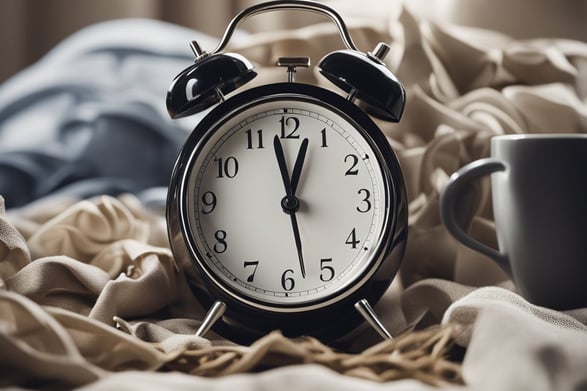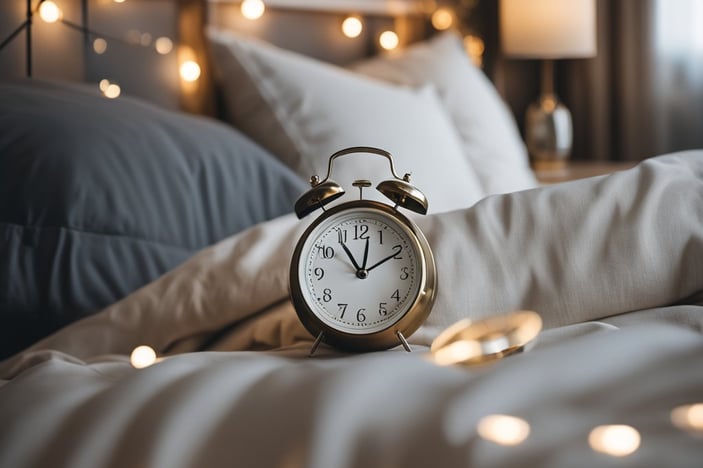Top 10 Signs You Need More Sleep: Recognizing the Warning Signals for Better Health
10/15/20243 min read
Quality sleep is one of the most important aspects of our daily lives in terms of keeping good health and well-being. The capability of recognizing signs of not sleeping enough will undoubtedly help an individual take positive steps toward better sleep hygiene. Long-term failure to get sufficient sleep may result in severe health problems; hence, it is worthy to be aware of those conditions that indicate one is not resting properly.


People often overlook the telling signs that show them they're sleeping more. The signs can vary from mood swings to falling productivity. The following article will point out the top 10 signs, which indicate that one should reconsider sleep patterns and take a rest.
Thus, understanding sleep deprivation is essential since it affects both physical and mental health. Once one knows such signs, they may henceforth make the necessary changes to advance in their quality of sleep and therefore daily life.
Identifying the Symptoms of Sleep Deprivation


Deprivation of sleep can be reflected in a variety of symptoms related to one's physical and mental health. Being sensitive to these signs may help an individual know when to seek restorative sleep.
Physical Health Indicators
Sleep deprivation affects physical health in many ways. A major effect is the hormonal imbalance, especially in hormones such as ghrelin and leptin responsible for appetite regulation. While experiencing low amounts of sleep, ghrelin rises while the amount of leptin falls, thus giving one increased hunger and cravings for food and a highly probable case of obesity.
Chronic sleep deprivation may lower the defenses of the immune system and make it more susceptible to disease. Further, sleep deprivation has been linked to a person's risk for developing conditions like type 2 diabetes. Sleep deprivation can lead to low libido and further disorders such as erectile dysfunction. These physical signs are important manifestations of a larger sleep need.
Effects on Mental and Emotional Well-being
The psychological effects of sleep deprivation are intense. Inadequate rest can result in the onset of depression and anxiety, which affects one's life significantly. The individual feels much more irritable, which further impairs their potential ability to cope with one's stress.
Poor sleep also threatens positive concentration, performance level, and solidifies memory. Judgment may also be clouded with poor sleep, thus making bad decisions. Therefore, mood swings and compromised cognitive function may act as signals of a serious need to enhance sleep condition.
How to Improve Sleep Quality and Hygiene


Improvement in sleep hygiene helps in the improvement of the quality of sleep for overall better health. The individual should emphasize the environment and proper routine habits matched with their body's biological cycle.
Sleep Environment
A pleasant sleep environment is greatly helpful in achieving good sleep. The bedroom should be dark, quiet, and cool. People can block the light with blackout curtains and mask jarring sounds with earplugs or white noise machines.
The mattress and pillows should have correct body support. It is best to pick materials that people find most agreeable since it reflects comfort when they sleep.
It relaxes the body, hence clearing the space of clutter and keeping it tidy. Minimizing screen time before bed reduces blue light exposure, which interferes with melatonin levels and alters the body's natural circadian rhythms. Indeed, making a sleep-promoting environment does improve the quality of sleep, which contributes to higher stages of REM non-REM sleep and less intense symptoms of insomnia.
Establish Regular Sleep Patterns
Having a regular sleep schedule operates on the premise of aligning the internal clock of the body with daily events. Identically timed sleep and wake times work to regulate the hormones in charge of inducing sleep, and when done over time, will tend toward improvement in the quality of sleep over a period of time.
They should establish a bedtime routine that shall assist the body in getting ready for sleep. This can be reading, light stretching, or meditation.
It can help track the pattern of sleep and identify habits that interfere with rest. It is able to show the relationship between life habits, such as caffeine and alcohol, and sleep.
Good sleep hygiene practices, including small naps and controlling light, can promote good sleep health. With time, good practices bring better outcomes in terms of sleeping and overall mental well-being.


Joy
Inspire your journey to happiness and fulfillment.
contact us
Growth
© 2024. All rights reserved.
